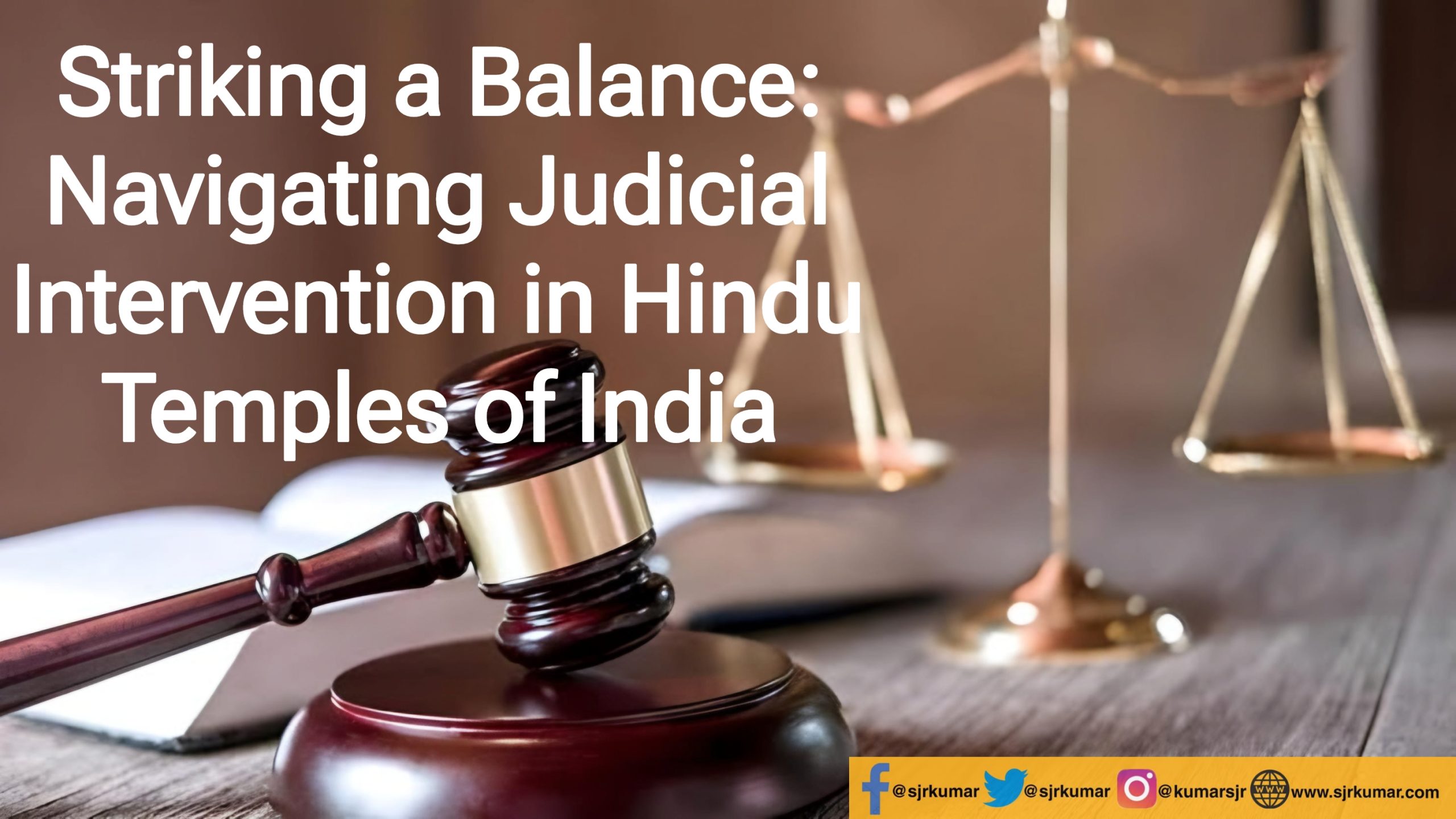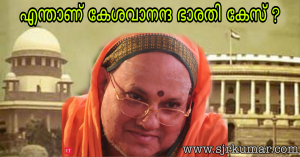Striking a Balance: Navigating Judicial Intervention in Hindu Temples of India
India’s vibrant tapestry is woven with the threads of its diverse faiths, and Hindu temples serve as the cornerstones of this rich cultural heritage. These sacred spaces, brimming with centuries-old traditions and spiritual significance, have recently become the center of a complex debate: the extent to which courts should intervene in their internal affairs.
While the Indian judiciary plays an undeniable role in upholding the law and resolving civil disputes, including those pertaining to ownership and criminal matters, its expanding reach into the realm of religion, particularly Hindu temples, has sparked concern. Proponents of limited intervention argue that excessive judicial influence can disrupt the delicate balance between upholding the law and respecting the autonomy of religious communities.

The crux of the argument lies in safeguarding religious autonomy, a fundamental tenet of India’s secular fabric. This autonomy empowers religious communities to govern themselves based on their established beliefs and traditions, free from undue state interference. It allows them to preserve their unique cultural heritage and nurture their spiritual practices without external hindrance.
However, we should acknowledge the legitimacy of judicial intervention in specific scenarios:
Civil disputes: When disagreements arise within temple administration, courts can serve as neutral platforms for seeking fair and legal resolutions, ensuring internal harmony and adherence to the law.
Ownership issues: If the ownership rights of temples or their properties are contested, courts can offer impartial forums to settle such disputes, protecting the sanctity of these sacred spaces and their associated assets.
Criminal activity: If criminal offenses occur within temple premises, the legal system has the inherent responsibility to investigate and prosecute such acts, ensuring the safety and sanctity of these sacred spaces and upholding the law.
Protecting places of worship: Courts can act as deterrents against acts of vandalism or destruction of religious structures, safeguarding the fundamental right to religious freedom for all communities.
Corruption, financial misappropriation, and acts of fraud: Courts have a vital role to play in ensuring financial integrity and upholding the law when it comes to corruption, misappropriation of temple funds, or fraudulent activities.

Finding the middle ground is key. By advocating for limited judicial intervention in matters of religious practice and internal governance, while acknowledging the court’s role in upholding the law and protecting fundamental rights in specific situations, we can ensure a balanced approach that fosters both cultural preservation and adherence to the legal framework. This balanced approach is crucial for India’s diverse communities to coexist and flourish together, ensuring that the spiritual and cultural heart of the nation continues to beat strong.

A Positive Shift
There’s encouraging news in this ongoing debate. A positive shift is emerging – the Indian judiciary appears to be recognizing the importance of respecting boundaries when it comes to matters of tradition and belief within Hindu temples. In the Sabarimala entry of young women’s case, the Constitution Bench of the Hon. Supreme Court of India, while referring the case to a higher bench, specifically questioned whether the judiciary, while possessing expertise in legal matters, holds equal expertise in religious matters to decide on issues of temple traditions and practices. This crucial self-examination signals a growing understanding of the limits of judicial purview.
Additionally, the recent Kerala High Court judgment disallowing a petition for interfering in the appointment of the chief priest of Sabarimala temple marks a welcome change. These developments cumulatively suggest a growing awareness that religious communities should retain autonomy in these internal affairs, fostering a healthy balance between the judiciary and the preservation of India’s rich spiritual heritage.

The Role of Government
The issue of unnecessary interference into religious matters doesn’t end with the judiciary; ruling governments also play a significant role. They often interfere in temple matters, administering temples and managing their assets and income, either directly or through autonomous bodies like Devaswom Boards. This keeps the Hindu community and devotees sidelined in temple management, forcing them to seek judicial redressal for their legitimate grievances. Therefore, when concerns about judicial overreach are raised, it’s necessary to acknowledge that courts often step in to provide aid.

The ideal solution lies in enacting legal provisions that guarantee temple management rests solely with devotees from the Hindu community. It’s up to the Hindu community to initiate this process and free temple administration from the control of the government and its appointed politicians.
Author: SJR Kumar
28.02.2024



